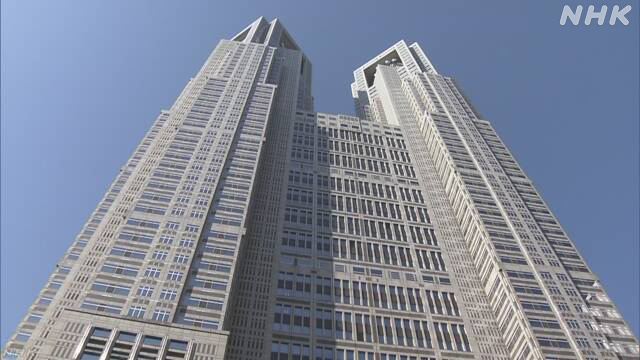The Tokyo Metropolitan Government, which has a policy of requesting a state of emergency soon, is rushing to select the target industry while proceeding with discussions with the national government as it is considering making a leave request.
In Tokyo, the spread of infection continues on the 21st, March, with the largest number of 843 people being newly confirmed after the second state of emergency was lifted.
The capital has a policy of requesting the country to issue a state of emergency in the near future, and is proceeding with discussions with the country on specific measures and periods.
The focus is on whether the flow of people during the Golden Week holidays, which is approaching next week, can be significantly suppressed, and the Tokyo Metropolitan Government is considering taking a step further than the measures taken in the current "Priority Measures for Prevention of Spread, etc." I will.
Two emergency declarations have been issued for Tokyo so far, and the first declaration from April to May last year requested a leave of absence for a wide range of industries.
The Tokyo Metropolitan Government will discuss the details of the measures and the financial support of the government regarding the provision of cooperation funds through discussions between Osaka Prefecture and the government, which have already requested the declaration, while referring to the response at this time. We are in a hurry to select an industry.
Request for leave in the first state of emergency
The state of emergency for Tokyo has been issued twice so far, and the first declaration from April to May last year requested a leave of absence for a wide range of industries.
In the first state of emergency, the request for closure was made at facilities such as karaoke shops, live houses, sports clubs, amusement parks, and movie theaters where many people gather.
Large commercial facilities such as department stores and shopping centers were included in the leave request except for areas where daily necessities are sold.
We also requested the school to be closed and the event to be stopped.
In addition, we asked restaurants to cooperate in shortening business hours by 8:00 pm, and we decided to serve sake by 7:00 pm.
On the other hand, in the second state of emergency from January to March, we did not request a leave of absence, but requested restaurants, bars, and karaoke stores to shorten their business hours.
The time was the same as the first time, until 8 pm, and the sake was served until 7 pm.
The event requested that the maximum number of guests be 5,000 and the capacity be 50% or less, rather than the first suspension.
We also asked entertainment facilities to cooperate in shortening business hours by 8:00 pm.
In addition to these requests to businesses, a request was made to the citizens of Tokyo to refrain from going out. We asked for "especially thoroughness after 8 pm".
In each case, we requested that we do not go out in principle unless it is necessary to maintain our livelihood, such as going to the hospital or buying food.

